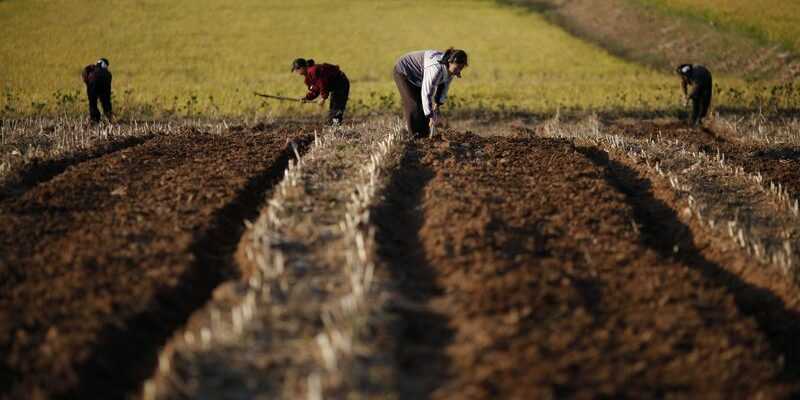North Korean leader Kim Jong Un had called for measures to improve a tight food situation caused by the coronavirus pandemic and typhoons, despite slight improvements early last year.
Drought and floods have long been a seasonal threat to North Korea, which lacks irrigation systems and other infrastructure, and any serious natural hazard could cripple its reclusive economy, already battered by international sanctions and near – cessation of commercial exchanges.
The Northern Rodong Sinmun newspaper said government officials and workers from enterprises and factories have joined farmers across the country in distributing pumping equipment and developing water resources in drought-prone areas.
He did not specify the damage suffered so far, but said the efforts were aimed at countering an ongoing drought and preparing for a future drought.
“Systematic and aggressive efforts are underway to raise public awareness and mobilize all available capacities to prevent crop damage caused by drought in advance,” the newspaper said.
On Tuesday, North Korean weather authorities warned of prolonged dry weather across the country until early next week, according to the official KCNA news agency.
The weather agency said last week that the average temperature for April was 2.3 degrees Celsius (36.1 Fahrenheit) above normal, with just 44% of the average rainfall nationwide.
In Anju and Kaechon, north of the capital Pyongyang, people created ponds, added fertilizers and growth stimulators to crops, and sent tractors, trucks and cultivators to haul water to farms, according to Rodong .
Another report indicates that units of young workers, called dolgyeokdae or youth brigades and usually mobilized in major infrastructure projects, have recently built waterways in the eastern port city of Hamhung, as part of efforts to modernization and expansion of irrigation facilities.
In March, the United Nations urged Pyongyang to reopen its borders to aid workers and food imports, saying North Korea’s growing isolation may have left many people facing starvation.
North Korea has not officially confirmed a case of COVID-19, but it had closed its borders and restricted travel, before briefly resuming trade with China earlier this year.
The World Food Program has estimated that even before the pandemic hit, 11 million people, more than 40% of the population, were undernourished and in need of humanitarian assistance.
